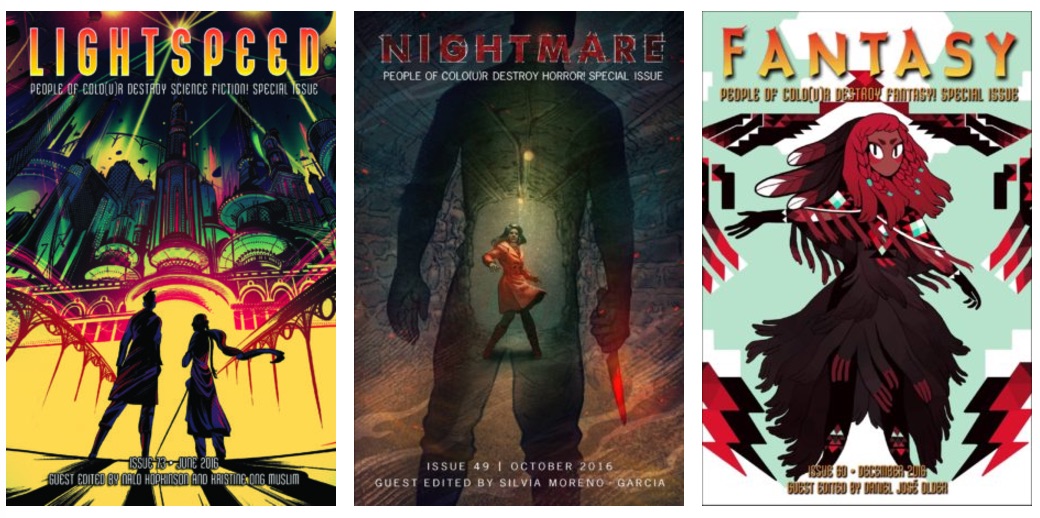
I’ve had quite a few stories out in the past few years. There are more to be published, and more to be written. Mostly, I’m writing for anthologies I’ve been invited to submit to. I’m pretty darned fortunate to be in a place in my career where people are regularly coming to me for my work.
But that means that my attention is often focused on the projects I’ve been specifically asked to write for. I don’t spend a lot of time browsing market listings and thinking, “Gee, what should I work on next?”
So: if you find yourself thinking “Gosh, I’d love to have a writer like Lucy contribute to my book,” the single best way to make that happen is to ask me. I won’t bite! Honest. If you offer me a pro rate and I like the project I’ll most likely reply, “Sure, when do you need it?”
Many other working writers are in exactly the same situation. They have many requests to focus on; open calls for submission come and go without these busy writers ever being aware of the new opportunities.
Or, they might see a call for submission, consider submitting … and realize that working on something purely on speculation when they have so many other invitations to work on instead might not be the best use of their time. They let the open call pass by.
This has broader implications: I see publications being criticized for having few or no contributors who aren’t white male authors. Many times those editors throw up their hands and say, “Well, we posted the guidelines far and wide! What else were we supposed to do?”
Specifically ask the individual writers you hoped to have in your publication. That’s what you can do.
And now I’m hearing newbie editors exclaiming, “But what if I invite these people and they turn in stories I can’t use?”
Then you work with the writers to see if they can bring the pieces up to your expectations. And if not, you politely decline them. In short, you do your job as editor.
None of the invitations I’ve received have represented guaranteed promises to publish. In every circumstance I still have to turn in something the editor feels is right for the anthology or magazine, both in terms of quality and in terms of his or her individual taste.
But with an invitation, I have an assurance that the editor will read my submission reasonably quickly and take the time to provide detailed feedback and direction if it isn’t what he or she wanted. (Then, it’s up to me to take that feedback and do a proper revision, and so far that’s almost always worked out.)
With an invitation, I know my work won’t languish for months and then simply get a nonresponse or flat rejection, as is often the case when you’re writing something purely on spec. In short, with an invitation, I have some guarantee that I won’t be wasting my time on the project.
Outreach takes a bit more time, yes, but any editor can do it. And sometimes you have to reach out more than you expected to (because, hey, the first batch of people you ask may be all booked up). But it’s totally doable, if you want to do it. You don’t have to just sit on your hands and complain that you’re stuck with whatever gets flung over the transom. You’re in charge of your project. If you don’t like what’s being sent to you, or if you’re worried you’ll be criticized because you’re only getting stories from one group of writers, go out and find something else from someone else.
But if you find yourself thinking things like, “But black women don’t write horror! How am I supposed to invite any?” That’s a clear sign you need to do a bit more research and reading before you start your outreach.
Leave a Reply
You must be logged in to post a comment.